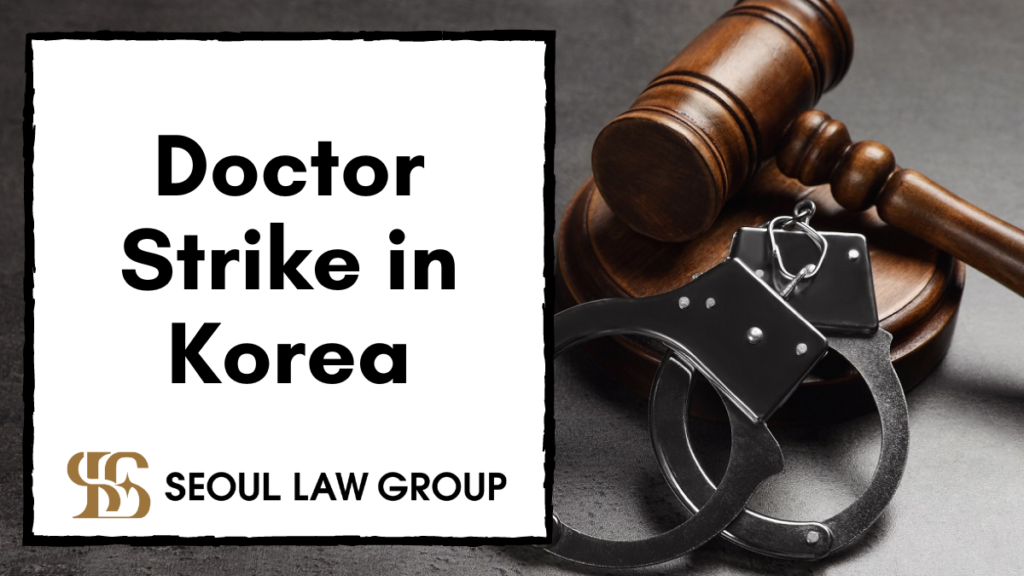Consider a scenario where collective actions by the doctors (in this text, for convenience, the term “doctors” means “interns and residents”) result in delayed or canceled surgeries, leading to disabilities or even death for patients who could not receive treatment. How would liability for damages be distributed among the victims (patients), the hospital, and the doctors? Can they be completely exempt from civil liabilities in such instances?

Table of Contents
The Civil Legal Status of Doctors and Their Relationship with Patients and Hospitals
As discussed in a previous article (Doctor Wars – The Doctors strike back (1)), we have established that government mandates for medical service commencement are valid and that the refusal to provide medical services by the doctors is unjustifiable.
Assuming this premise, we delve into the legal status of them. According to the Supreme Court of Korea, doctors are considered to have dual status as both trainees and workers. Therefore, the relationship among patients, hospitals, and doctors is as follows:
a. Patients enter into a medical contract with hospitals, granting them the right to request medical services, which hospitals are obligated to fulfill.
b. Hospitals engage with the doctors through training contracts (which include elements of employment contracts), thus obligating hospitals to provide appropriate education and demand reasonable labor in return.
c. The doctors, by signing the training contract, have the right to demand proper education from hospitals and are simultaneously obliged to provide suitable labor.
Review of Similar Cases – Damages to Third Parties Due to Collective Actions
The current scenario, where the doctors’ refusal to treat has prevented hospitals from providing medical services, leading to potential death or disability for patients, lacks direct precedents in Korea regarding the civil liabilities of doctors in collective action situations. However, parallels can be drawn with cases where third parties suffer losses due to disputes involving workers and companies.
In such instances, Korean case law typically distinguishes between legal and illegal collective actions (쟁의행위) of workers:
If the collective action is legal, third parties may seek damages from the employer, who cannot hold the workers liable. Under the principle of the assistant’s performance in Korean Civil Law (Article 391), the employer’s negligence is largely irrelevant.
If the collective action is illegal, both the employer and the third parties can seek damages from the workers, as clearly established by the Supreme Court.
Applying these principles to the current scenario, if the collective action by doctors is deemed legal, patients can hold the hospital accountable. Conversely, if the action is deemed illegal, patients can claim damages from both the hospital and the doctors, regardless of the hospital’s intent or negligence. Moreover, this discussion has only considered damages claims based on torts (불법행위); patients might also claim damages from hospitals for breach of contract under Korean Civil Law (Article 390).
Potential for Third-Party Right Infringement Claims
Beyond the aforementioned considerations, patients might be able to hold the doctors accountable under the principle of third-party right infringement (제3자 채권 침해). The Supreme Court has held that even if there is no direct relationship between the debtor and the third party, if the third party (the doctors) illegally impedes the realization of the creditor’s rights (the patient’s rights), they can be held liable.
Conclusion
The doctors, possessing dual status as trainees and workers, can be held accountable for damages to third parties resulting from collective actions, similar to other employment-related disputes. Additionally, claims for damages based on third-party right infringement may also be viable.

